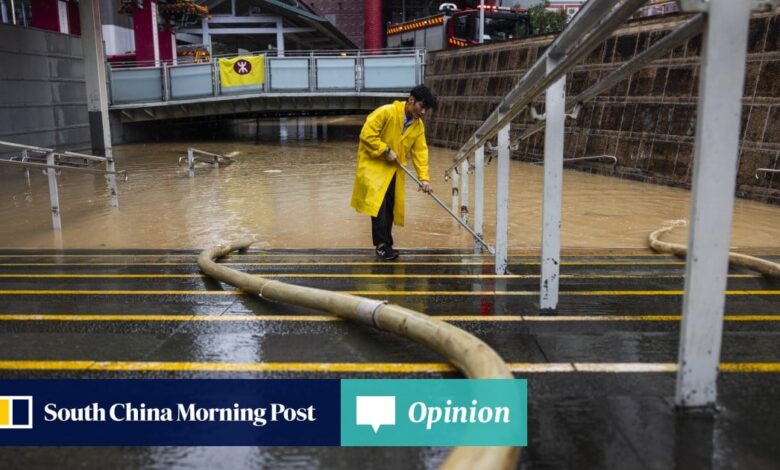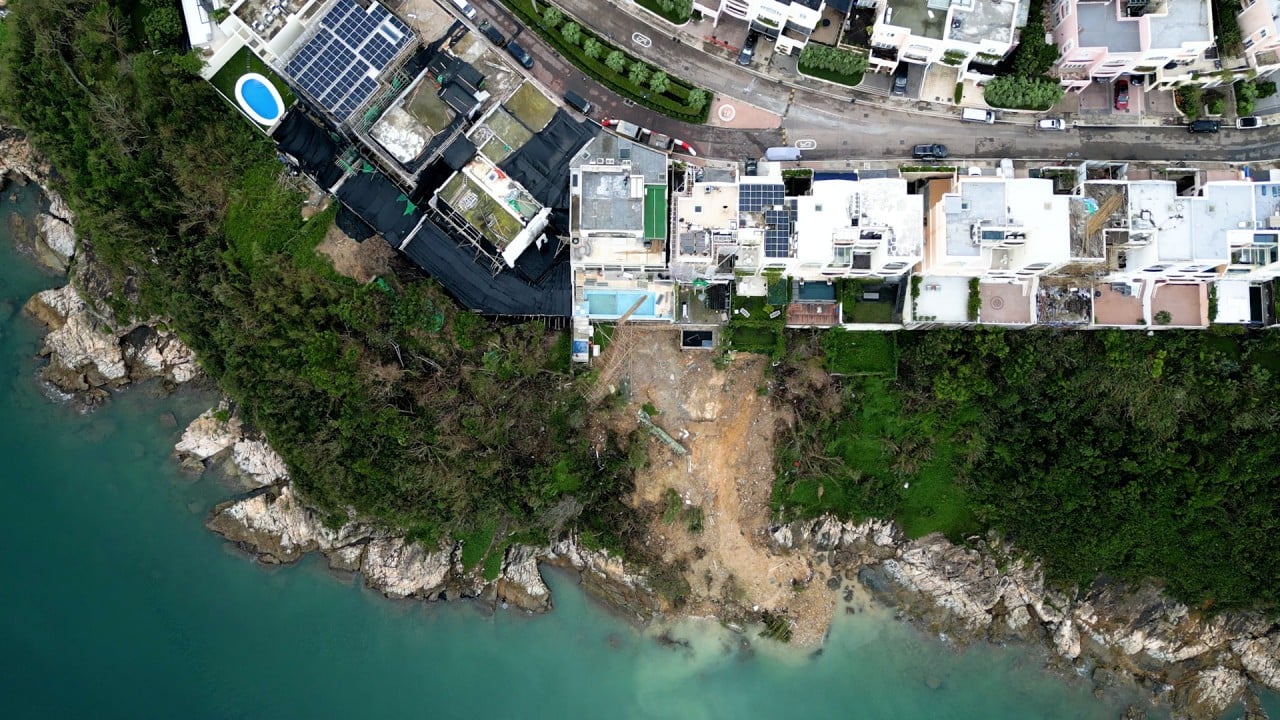Opinion | Guided by climate science, Hong Kong must come together to meet extreme weather challenge

[ad_1]
Climate change, once a term relegated to academic discussions, has made its presence felt in Hong Kong with a ferocity that’s hard to ignore. Global warming is no longer a theoretical scenario; it is here.
These weather events are not isolated incidents; they are manifestations of systemic changes in the global climate system. The science is clear: these events are the direct consequences of increased greenhouse gas concentrations.
As greenhouse gases are trapped, meteorologists and climate scientists point to a warmer atmosphere with a higher water vapour capacity. This relationship is described by the Clausius-Clapeyron equation, a law of thermodynamics. Simply put, for each degree Celsius of warming, the air can hold about 7 per cent more water vapour. This additional moisture can fuel more intense precipitation events, establishing a clear link between climate change and extreme rainfall.
In Hong Kong, the torrential rains have triggered landslides. And, whether it is landslides, rainfall or typhoons, global climate models have projected such extremes. In fact, scientists have been waving red flags for decades, warning about the looming reality of climate change.
Yet, in the immediate aftermath of these events, both officials and the public seem to have been caught off guard. Why were we not prepared?
It is high time Hongkongers started treating climate science not as merely an academic subject but as a reality affecting us right now. Until we do, extreme weather will continue to catch us off guard.
Government policy needs a scientific backbone. Agencies like the Security Bureau and the Environmental Protection Department must employ science-based strategies to reduce the impact of climate anomalies.
To mitigate future disasters, we must establish a platform that unites experts from academia, government and the private sector to collaborate on solutions designed to lessen the impact of such events. This platform would serve as a centralised hub for real-time data collection, analysis and dissemination.
In Hong Kong, for example, expertise in soil mechanics and geotechnical engineering could help to inform ways to mitigate rainfall-induced landslides.
The platform should be a dynamic space where innovative solutions are not only discussed but also implemented and evaluated. Quarterly meetings could be organised to assess progress and update strategies. Funded by a mix of public and private contributions, the platform would also serve as a repository for best practices, facilitating rapid response and knowledge sharing during critical times.
How green building design can help take heat off Hong Kong
How green building design can help take heat off Hong Kong
To fully realise these benefits, active government involvement is not just beneficial, but essential. Building on that, it takes strong private-public-philanthropic partnerships and strategic deployment of catalytic capital to scale and empower green technologies.
Moreover, the guiding principle behind all policy decisions and investments should be a data-driven, science-based approach. Adopting such a strategy will not only enhance the accuracy of weather warnings but will also fortify public trust in these systems – ultimately conserving both lives and resources. To achieve this, it is vital to integrate scientific data into local governance immediately.
The extreme weather events befalling Hong Kong are not anomalies; they are forecasts of a new climatic normal. Black rainstorms, landslides and super typhoons are no longer isolated incidents; they are a grim preview of a climate-disrupted world and demand immediate action.
The time for treating climate change as a “future problem” has long passed. It is an urgent issue that requires immediate, science-based action.
Poman Lo is the founder of the Institute of Sustainability and Technology, a Hong Kong-based research and education institute
[ad_2]
Source link






